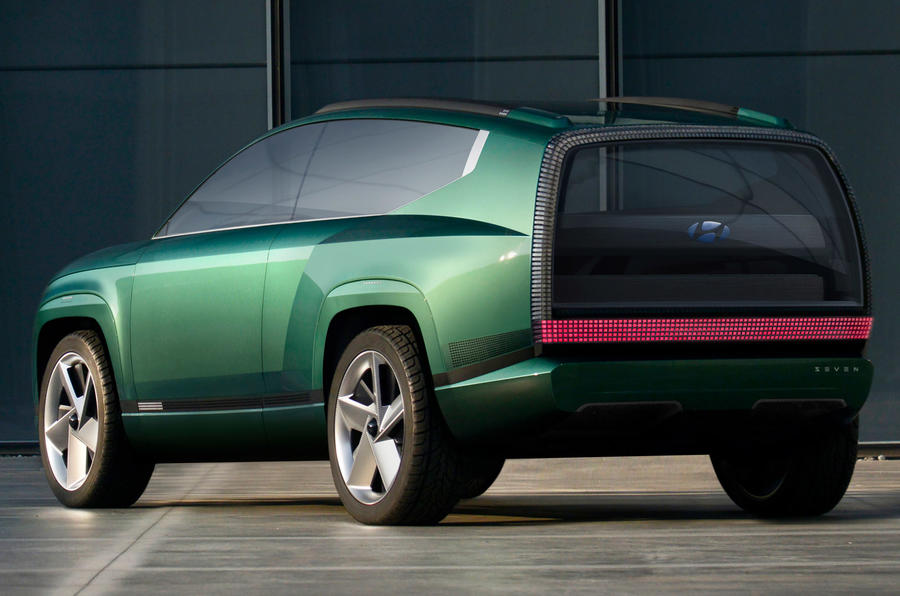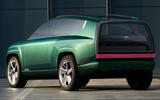So many column inches have been filled with talk of Hyundai’s stratospheric ascent through the ranks of the car industry that its new Seven concept’s starring role at the Los Angeles motor show seems a perfectly natural fit.
First came the Le Fil Rouge concept, which looked like nothing Hyundai had ever built and was instrumental in building intrigue around the production cars to come. Then there was the wonderfully retro 45 concept, which we know now as the little-changed Ioniq 5, and after that the Prophecy saloon, which we expect to morph into a slippery sports saloon with Porsche Taycan-bating performance figures in the next year or so.
And now there's the Seven, which gives a tantalising glimpse of a genuinely desirable large electric SUV - a type of car that usually fails resoundingly to get car enthusiasts particularly excited. Gaze upon its Kamm-tail rear end, its pixeltastic light clusters and confident stance: this is a brand that knows exactly how to stand out and does it in such a way that both traditional buyers in this segment and 'petrolheads' alike have something to get excited about.
We know now that Hyundai does what it says it will do, so while the eventual Ioniq 7 will no doubt drop some of the Seven concept's less feasible design cues, its futuristic and minimalistic traits will shine through. And that will be good news for the hordes of new fans that Hyundai has won in recent years with its dramatically styled concepts and one-offs (just last week, the quiet unveiling of the 'retro-futuristic' electrified Grandeur saloon set the internet ablaze with collective admiration).
Just last year, the firm's design boss, Sang Yup Lee, told Autocar: "Hyundai is known for value for money, but this isn't enough. We need to add emotional value to our cars through design."
Already this ploy appears to be bearing fruit, and Lee's earlier promise that future EVs from the brand wouldn't all look alike must surely be cultivating appeal across various demographics. The trick will be matching its acclaimed design cues with well-rounded powertrains and innovative interiors, but again the early signs are that the brand is prepared to meet that challenge.


















Join the debate
Add your comment
Of course electric cars are cool. They don't waste most of their energy as heat for a start, like fossil cars do. There's certainly nothing cool about being 30% efficient, like a fossil burner. Also you can power an electric car with 100% British renewable energy and you don't have to buy any of Putin's Petrol. That's also cool.
So, this is the new "cool" , question, any of you out there go WOW!?, because, other than hypercars, the rest are a means to an end, 21st Century utility appliances.
If this thing is cool, then I'm happy to be uncool!
On a more serious note. I wish we could get back to cars having standard rear lights instead of the curreent mess of led strips of all shapes and sizes. There was once a time when the twin rear lights gave some sort of indication of the size of vehicle ahead, or its proximity - wheras now it's not certain what exactly is ahead or whether it is just an obscure light reflection. At best it makes the traffic ahead look like a dissjointed array of distracting shapes.